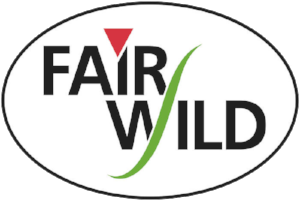Local authorities and communities celebrate success of wild plant collection initiative
Hanoi, Viet Nam, 15th March 2018 —Sixty collectors of wild medicinal and aromatic plants met in Bac Kan this week to reflect on their achievements and the challenges overcome during the implementation of a project on “Enhancing Management and Benefit Flows in Viet Nam’s Wild Medicinal Products.”
The three-year project helped train 1,060 local wild plant harvesters, including 460 women, in Viet Nam’s northern Bac Kan province on sustainable harvesting techniques and equitable trading practices following the FairWild Standard principles.
The FairWild Standard is an international best practices framework developed by TRAFFIC and others to help ensure that wild plants are harvested using sustainable methods and under ethical working conditions.
By following the Standard’s guidelines, local co-operatives and groups reported a 20% increase in their Jiaogulan Gynostemma pentaphyllum harvest in the final year of the project over the previous year, all within the established sustainable harvesting limits.
Sales of medicinal and aromatic plants (MAPs) from collector cooperatives and groups reached almost 6 tonnes over 2017–2018, with both harvesting activity and sales becoming more consistent. The project was also successful in securing a trade contract with a national corporation for purchase prices 5% above market rates.
“We are very proud of the achievements made so far by the collectors of Bac Kan. The fundamentals instilled by the project will go a long way to increasing the capacity of local collectors,” said Nguyen Huu Thang, Director of Bac Kan’s Forest Protection Department.
“We have confidence that Bac Kan’s harvesters will continue to implement the policies of the project and as a result, protect wild plant collection and increase revenues from it.”
The wrap-up workshop crystallised the lessons learned over the project’s lifecycle and looked to how the fundamentals will be replicated by local authorities, communities, and other stakeholders in the future.
The meeting celebrated the progress made towards improving the livelihoods of participants by engaging them in sustainable harvesting of wild MAPs and enhancing their capacity to negotiate higher prices and sales by eliminating links in the trade chain. Collectors spoke about the challenges they had faced and how they overcame them.
Project partners supported the establishment of 16 formal collector groups and registered collector co-operatives and helped secure processing equipment, such as herb cutting and drying machines, to help improve the shelf-life of the products. Upgrades to the product packaging included vacuum-sealed bags and more attractive labelling.
Following the workshop, participants went on a two-day field visit to Quang Ninh province to observe one of the local co-operatives that has successfully marketed their goods and increased their income from MAPs. The visit provided an opportunity to hear at firsthand about sustainable conservation experiences and harvesting techniques, as well as preliminary processing, product development, marketing, and the benefits for local households.
“As a result of the project we have learned a great deal about harvesting wild plants in a more sustainable manner. Change is difficult. It’s a long process. But we are better equipped now, and we understand more what our efforts are worth,” said Nguyen Thi Thap, a local collector.
Another project outcome was support to the Bac Kan People’s Committee in the development of a One Commune One Product (OCOP) programme that will focus through 2020 on the development of sustainably sourced products from four medicinal plants: Hypericum sampsonii, Heliciopsis terminalis, Gynostemma pentaphyllum, and Fallopia multiflora.
“The Bac Kan project has demonstrated successful implementation of the FairWild Standard’s best practices for sustainable wild plant harvesting and livelihood improvement for some of the poorest communities utilising these resources. This paves the way for further enhancements of the wild plant trade in Viet Nam, with benefits for species conservation and people’s well-being,”
Sarah Ferguson, head of TRAFFIC’s Viet Nam office.
An implementation plan was created to provide a framework through which local authorities can continue project objectives beyond TRAFFIC’s involvement.
The activities of the joint project between Bac Kan’s Forest Protection Department (FPD), Hanoi University of Pharmacy, DK Natura, Viet Nam’s Ministry of Health, and TRAFFIC, supported by a Darwin Initiative grant through UK Government funding was initiated in 2015.

